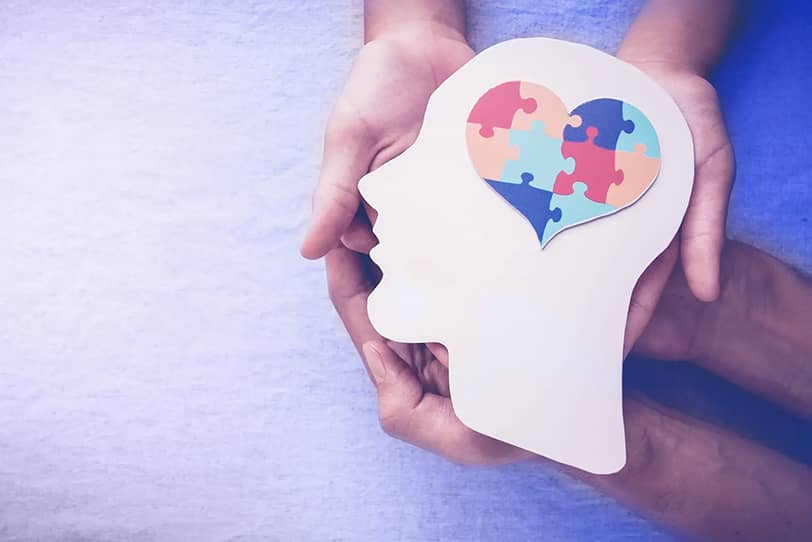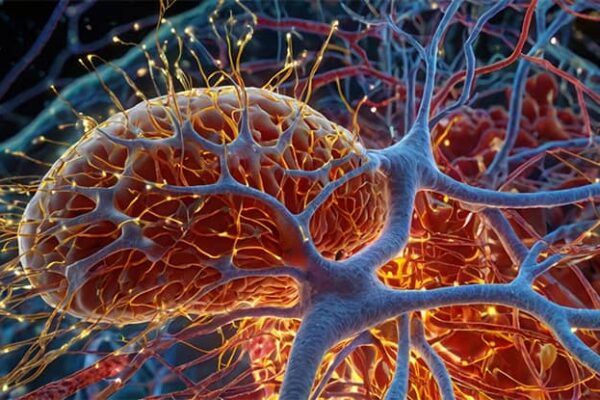We live in an era where stress, anxiety, and emotional burnout have become an integral part of everyday life. However, despite this, many still perceive mental health as something secondary, underestimating its impact on quality of life. Meanwhile, psychological well-being is not just the absence of mental disorders but a crucial aspect of overall health that determines our ability to cope with difficulties, build relationships, achieve our goals, and find joy in life.
In recent years, interest in the topic of mental health has grown significantly. This is not only due to the increasing number of people facing emotional difficulties but also to the gradual dismantling of stigmas surrounding this issue.
More and more people are beginning to speak openly about their experiences, seek help from professionals, and look for ways to maintain inner balance. Social media, blogs, and various media outlets actively address mental health topics, making them more accessible for discussion.
However, despite this progress, many myths and misconceptions still exist around the topic, preventing people from properly understanding their mental states and taking timely measures to improve them.
This is why it is so important to continue discussing mental health, debunking stereotypes, and providing accurate information. Understanding how our psyche works, what factors influence its condition, and how to maintain psychological well-being not only improves quality of life but also helps prevent many issues.

What Is Mental Health?
Mental health is an essential part of overall well-being, and its importance cannot be overstated. It is not a static state but a dynamic process that requires attention and care. It involves the ability to adapt to changes, find balance between work and rest, and maintain a positive attitude toward oneself and the world.
Definition of the Concept
Mental health is a state of well-being in which a person realizes their abilities, can cope with everyday life stresses, work productively, and contribute to society. This definition, proposed by the World Health Organization (WHO), emphasizes that mental health is not just the absence of illnesses but an active state of harmony and balance.
It includes the ability to regulate emotions, think clearly, build healthy relationships, and find meaning in life. Mental health also implies adaptability to change and resilience in overcoming difficulties while maintaining inner stability. It is a state that allows a person to feel confident, withstand external challenges, and find joy in everyday life.
Key Components of Mental Health
Mental health consists of several components, each playing a vital role in overall well-being.
- Emotional well-being is the ability to understand, express, and manage emotions. It includes the skill of coping with negative feelings such as anger, anxiety, or sadness. An emotionally healthy person can maintain a balance between positive and negative emotions, neither suppressing them nor letting them take full control of the mind.
- Psychological well-being relates to our thinking, self-perception, and worldview. It includes self-esteem, confidence, the ability to set and achieve goals. A psychologically healthy person has clear thinking, can make decisions, and deal with life’s challenges. They are also capable of self-reflection, which helps them better understand their needs.
- Social well-being reflects the quality of our relationships with others. It includes the ability to build and maintain healthy, supportive relationships with family, friends, colleagues, and society as a whole. A socially healthy person feels part of a community, can empathize with others, and find support in difficult situations. Social connections play a key role in maintaining mental health, as they provide a sense of belonging and security.
These components are closely interconnected, and a disturbance in one can affect overall mental health. For example, prolonged stress can lead to emotional exhaustion, which, in turn, can impact our thinking and relationships. That is why it is crucial to pay attention to all aspects of mental health to maintain inner balance and resilience in the modern world.

Common Myths About Mental Health
Mental health is a topic surrounded by many myths and stereotypes. Despite growing societal awareness, many people still hold outdated beliefs that prevent them from properly understanding their mental states and seeking help in time. These myths not only create barriers to receiving support but also contribute to the stigmatization of those experiencing mental health challenges.
Debunking these misconceptions is an important step toward a more mindful and compassionate approach to mental health. Understanding the truth helps not only to eliminate fears and prejudices but also to learn how to take better care of oneself and loved ones.
Myth 1: “Mental health is simply the absence of mental illness”
Truth: Mental health is much more than just the absence of disorders. It includes the ability to cope with daily stress, maintain emotional balance, build healthy relationships, and realize one’s potential.
Even if a person has no diagnosed mental disorders, this does not mean they are fully mentally healthy. For example, chronic stress, emotional burnout, or low self-esteem can significantly reduce quality of life, even if they do not develop into clinical conditions.
Myth 2: “Seeking help from a psychologist is a sign of weakness”
Truth: Seeking help from a psychologist or therapist is not a sign of weakness but a demonstration of self-care and responsibility for one’s well-being. Many people hesitate to see a specialist, fearing judgment or believing they should handle their problems alone. However, just like physical health, mental health sometimes requires professional support.
Psychologists and therapists help people navigate complex emotions, identify the root causes of their struggles, and develop strategies to overcome them. Seeking help is not only normal but also beneficial for overall well-being. It is a step toward self-awareness and a better quality of life, not a sign of weakness.
Myth 3: “Mental health issues last forever”
Truth: Many mental health conditions can be managed and treated, especially with timely intervention. For instance, depression, anxiety disorders, or post-traumatic stress disorder (PTSD) can be successfully treated or significantly alleviated through therapy, medication, or a combination of both.
It is important to understand that mental health challenges are not a life sentence. With the right support and treatment, individuals can return to a fulfilling life. The key factor is seeking professional help early and being willing to work on one’s well-being.
Myth 4: “Mental health does not affect physical health”
Truth: The connection between mental and physical health has been scientifically proven. For example, chronic stress can weaken the immune system, increase blood pressure, and even contribute to cardiovascular diseases. Depression and anxiety often come with physical symptoms such as fatigue, headaches, or digestive issues.
Additionally, mental health influences behavior: individuals struggling emotionally are more likely to neglect self-care, which can worsen physical health problems. Taking care of mental health is a crucial part of maintaining overall well-being.
Myth 5: “Mental health is only relevant for adults”
Truth: Mental health is important at every stage of life, starting from childhood. Children and teenagers can also experience emotional challenges such as anxiety, depression, or self-esteem issues. Early detection and support for mental health in children can prevent more serious problems in the future.
Moreover, developing healthy habits—such as managing stress, expressing emotions, and building relationships—begins in childhood. That is why it is essential to prioritize mental health at all life stages to ensure long-term resilience and well-being.

Facts About Mental Health
Mental health is a complex system influenced by many factors. It depends not only on genetics or external circumstances but also on our lifestyle, habits, and attitude toward ourselves. Understanding these factors helps us take better care of our psychological well-being and prevent many problems.
Supporting mental health does not require radical changes—often, small but consistent efforts are enough to significantly improve one’s state of mind.
The Impact of Lifestyle
- Sleep. The quality of sleep directly affects mental health. Chronic sleep deprivation can lead to increased irritability, anxiety, and even depression. During sleep, the brain processes information, recovers, and “resets.” Therefore, regular and high-quality sleep is the foundation of emotional resilience.
- Nutrition. Diet plays an essential role in maintaining mental health. For example, a deficiency in B vitamins, magnesium, or omega-3 fatty acids can negatively affect mood and cognitive function. A balanced diet rich in fruits, vegetables, whole grains, and healthy fats supports both physical and mental well-being.
- Physical activity. Regular exercise promotes the production of endorphins—hormones of happiness. Physical activity helps reduce stress levels, boost mood, and improve self-esteem. Even small activities, such as walking or yoga, can significantly enhance mental health.
The Role of Social Connections and Support
Humans are social beings, and our relationships with others play a crucial role in mental health. Support from loved ones, friends, and colleagues helps us cope with difficulties, reduces feelings of loneliness, and enhances resilience to stress.
Studies show that people with strong social connections are less likely to suffer from depression and anxiety disorders. Even a simple conversation with a close person can significantly improve emotional well-being. That is why it is essential to invest time in building and maintaining healthy relationships.
The Importance of Self-Reflection and Mindfulness
- Self-reflection is the ability to analyze one’s thoughts, emotions, and behavior. It helps individuals better understand themselves, their needs, and their reactions to external events.
- Mindfulness practice also plays an important role in maintaining mental health.
Mindfulness allows individuals to live in the present moment rather than dwelling on the past or worrying about the future. It helps reduce stress levels, improve focus, and enhance emotional resilience. Simple techniques, such as meditation or breathing exercises, can be powerful tools for maintaining mental balance.
Modern Methods for Supporting Mental Health
- Psychotherapy is one of the most effective ways to maintain mental health. It helps individuals process complex emotions, identify the root causes of their struggles, and develop strategies for overcoming them. There are many types of therapy, such as cognitive-behavioral therapy (CBT), gestalt therapy, and art therapy, each of which can be beneficial depending on individual needs.
- Meditation is a practice that helps calm the mind, reduce stress, and improve concentration. Regular meditation promotes emotional resilience and helps individuals cope with challenges more effectively.
- Hobbies and interests not only provide a break from daily worries but also offer an opportunity for self-expression, discovering new passions, and boosting self-esteem. Engaging in creative activities, sports, or other hobbies helps reduce stress levels and improve mood.
These factors demonstrate that mental health is the result of a holistic approach. Self-care, maintaining social connections, practicing mindfulness, and using modern methods help not only preserve but also strengthen psychological well-being. Understanding these aspects enables everyone to take a step toward a more harmonious and fulfilling life.

How to Recognize Mental Health Problems?
Mental health, like physical health, requires attention and care. However, unlike physical illnesses, mental health issues are not always obvious. They can develop gradually, disguising themselves as fatigue, a bad mood, or temporary difficulties. That is why it is so important to recognize warning signs that may indicate more serious problems.
Early detection of mental health difficulties allows for timely intervention and prevents further deterioration. Many people ignore the initial signals, attributing them to stress or overwork, but this can lead to more serious consequences.
Warning Signs
- Persistent Fatigue. If you feel exhausted even after getting enough rest, this may be a sign of emotional burnout, depression, or chronic stress. Fatigue that does not go away is often accompanied by a lack of energy and motivation.
- Apathy. Losing interest in activities that once brought joy is one of the key signs of mental health problems. If you notice that you no longer enjoy your hobbies, socializing with friends, or working toward your goals, it may be time to pay attention to your mental state.
- Irritability. Increased irritability, frequent outbursts of anger, or unexplained aggression can indicate inner tension. This is often associated with accumulated stress, anxiety, or emotional exhaustion.
- Sleep Disturbances. Issues such as insomnia, frequent night awakenings, or, conversely, excessive sleepiness can be linked to mental health struggles. Sleep disturbances often come with mood swings and overall well-being decline.
Other Signs
- Difficulty concentrating and memory problems.
- Feelings of guilt or worthlessness.
- Persistent anxiety or fear.
- Changes in appetite (loss of appetite or excessive food consumption).
- Physical symptoms such as headaches, stomach pain, or rapid heartbeat without a clear medical cause.
When to Seek Professional Help?
If you or someone close to you experiences any of the above symptoms for two weeks or more, it is a serious reason to seek professional help. Here are some situations where professional assistance is essential:
- Symptoms interfere with daily life. If your condition prevents you from working, studying, maintaining relationships, or performing everyday tasks, this is a clear signal to seek support.
- Thoughts of self-harm or suicide. If you have thoughts of suicide or self-harm, it is crucial to seek help immediately. This may be a sign of severe depression or another serious condition that requires urgent intervention.
- Inability to cope on your own. If you have tried to improve your condition (e.g., through rest, physical activity, or socializing) but it has not helped, consider seeing a psychologist or therapist.
- Support from loved ones. Sometimes, those around you may notice changes in your behavior before you do. If your loved ones express concern about your state, listen to them and consider reaching out to a specialist.
Recognizing mental health problems is the first step toward solving them. It is important to remember that seeking help is not a sign of weakness but an act of self-care. Timely professional support can significantly improve your quality of life and help you regain balance and well-being.

Conclusion
Mental health is an essential part of our lives, influencing everything—from our emotional state to physical well-being, from the quality of relationships to success in work and education. Taking care of mental health is not a luxury but a necessity, especially in today’s world, where stress and emotional pressures have become a routine part of daily life.
However, understanding this is only the beginning. It is important to move from theory to practice. Dedicate time to yourself, learn to recognize your emotions and needs, do not be afraid to talk about your feelings, and seek help when necessary.
Remember that maintaining mental health is an ongoing process that requires regular effort. This can be something simple, like daily walks, mindfulness practices, or conversations with a close friend. The key is to start and do it consistently.
For those who want to deepen their knowledge of mental health, there are many resources available: books, courses, podcasts, and online platforms where you can find useful information and support. You may also consider courses on stress management, meditation, or emotional intelligence to develop essential skills for maintaining mental balance.
Mental health concerns all of us. Taking care of it is not just a way to improve your life but also an opportunity to become a happier person. And remember—you are not alone, and help is always available. The most important thing is not to be afraid to accept it.
Recommended Reading
- “Undoing Depression: What Therapy Doesn’t Teach You and Medication Can’t Give You” by Richard O’Connor – A book on coping with depression, anxiety, and finding joy in everyday life.
- “Feeling Good: The New Mood Therapy” by David D. Burns – A classic work on cognitive-behavioral therapy (CBT) that helps deal with depression and anxiety.
- “The Power of Now: A Guide to Spiritual Enlightenment” by Eckhart Tolle – A book about mindfulness and living in the present moment, helping to reduce stress and anxiety.
- “The Subtle Art of Not Giving a F*ck: A Counterintuitive Approach to Living a Good Life” by Mark Manson – Offers an unconventional approach to handling difficulties and finding balance in life.
- “Emotional Intelligence: Why It Can Matter More Than IQ” by Daniel Goleman – Helps understand how to manage emotions and improve relationships with others.
- “Don’t Shoot the Dog!: The New Art of Teaching and Training” by Karen Pryor – While primarily about behavioral psychology, this book provides valuable techniques for habit change and self-improvement.
- “Mindfulness: An Eight-Week Plan for Finding Peace in a Frantic World” by Danny Penman – A practical guide to meditation and mindfulness for managing stress and anxiety.




